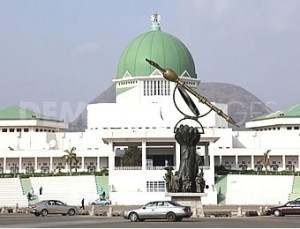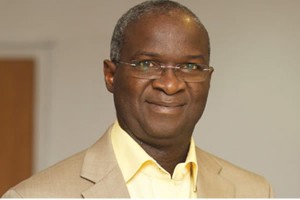ThisDay, Nigeria. Nigeria Sovereign Investment Authority (NSIA) has given a breakdown of the cost and commitments of the Second Niger Bridge project, which has been a subject of controversy in recent times.
According to a document THISDAY obtained from NSIA, the Second Niger Bridge project, which is being undertaken by Julius Berger Nigeria Plc-NSIA Motorway Investment Company Ltd (JB-NMIC) Consortium was estimated to cost $700 million, which is, ₦108 billion (at the then exchange rate of ₦154/$). NMIC is a transport subsidiary of NSIA.
The Second Niger Bridge project comprises Phases 1, 2a and 2b and includes a southern bypass of both Asaba and Onitsha cities with an approximate total length of 44km. The phase 1 of the project, which is the bridge and adjacent roads, is approximately 11.9 kilometres and will be constructed and operated under a Design, Build, Finance, Operate and Transfer (DBFOT) basis under a Public Private Partnership (PPP) scheme.
The bridge will comprise a 3.31 kilometre-long road section on the Delta side, including a 500 metre-long toll plaza; a 1.59 kilometres tolled concrete box-girder bridge with two superstructures; and a 7.0 kilometre-long road section on the Anambra side. It is expected that the bridge would be constructed and delivered in 48 months. When completed, the bridge and approach roads will have six lanes with three in each direction. Phase 2a is connected to the Asaba-Benin Expressway while Phase 2b is connected to the Onitsha-Enugu Expressway. Phases 2a and 2b together constitute the feeding approach roads.
Out of the ₦108 billion project cost, the Federal Government has already made a commitment to contribute ₦30 billion, which represented 28 per cent. The JBI-NMIC consortium would raise the remaining funds for the construction, operation and maintenance of the bridge and adjacent roads of Phase 1 under a 25-year concession.
The Federal Government has, till date, contributed ₦18.31 billion out of its commitment of ₦30 billion, comprising ₦8.464 billion from SURE-P budget in August 2014 for early works II and a further $50 million (about ₦9.8 billion) from its Eurobond loan for the execution of early works III.
According to NSIA, otherwise called Sovereign Wealth Fund (SWF), about ₦10.4 billion of the fund allocated by the Federal Government has so far been disbursed, leaving a balance of about ₦7.94 billion of government contribution with the sponsors. Funds have only been disbursed to the contractor upon successful attainment of construction milestones, which have been verified by the Technical Advisor of the Project (WSP Group) and rigorously scrutinised by NSIA.
The document, titled: ‘NSIA Detailed Project Update on Second Niger Bridge’, revealed that JB-NMIC as the developers, budgeted $5 million for the development of the project, split into $2.5 million each.
It also revealed that “the consortium assembled a team of advisers with proven capabilities and global experience in PPP infrastructure projects to ensure the Project gets first-class advisory services. This is required to enable the project to reach financial close – the point at which private capital is successfully raised.
“The consultants were engaged through a rigorous and competitive procurement process. To date the NSIA has spent the sum of $2.21 million on consultancy services provided by its team of advisers. An initial US$247,586 was spent on due diligence exercise to determine the viability of the project. “
NSIA listed the advisers for the due diligence phase to include: FBN Capital (Nigeria) – Financial Advisor, Murty International Limited (Nigeria) – Technical Advisor, White & Case LLP (UK) – Legal Advisor, WSP Group Africa (South Africa) – Technical Advisor, and Zephyrgold International (Nigeria) – Technical Advisor
And for the project development phase, the agency listed the advisers as: Africa Finance Corporation (Nigeria) – Financial Advisor, Clifford Chance LLP (UK) – Legal Advisor, Templars (Nigeria) – Legal Advisor, WSP Group Africa (Global) – Technical Advisor, Allot Nigeria Limited (Nigeria) – Traffic Advisor, Takedo International (UK) – Traffic Advisor and Aurecon (South Africa) – Environmental and Social Impact Advisor.
As for NSIA/NMIC’s contributions, the document stated: “Since joining the Consortium, NSIA-NMIC have provided significant value addition with respect to the project development. At the initial stage of its involvement, the NSIA undertook a value engineering exercise of the project, which resulted in a reduction of the estimated project cost. NSIA’s involvement also considerably improved the governance structure for the Project and assisted in managing the appointment of independent professional advisers to the Consortium.
“Apart from assisting Federal Ministry of Works in the negotiation of the Early Works contracts with Julius Berger Nigeria Plc, NSIA is also leading the negotiations of the key commercial terms for the project. In addition, NSIA is leading the capital raising effort for the project. Discussions are being held with Development Finance Institutions and many of them have already made soft commitments to funding the Project.”



